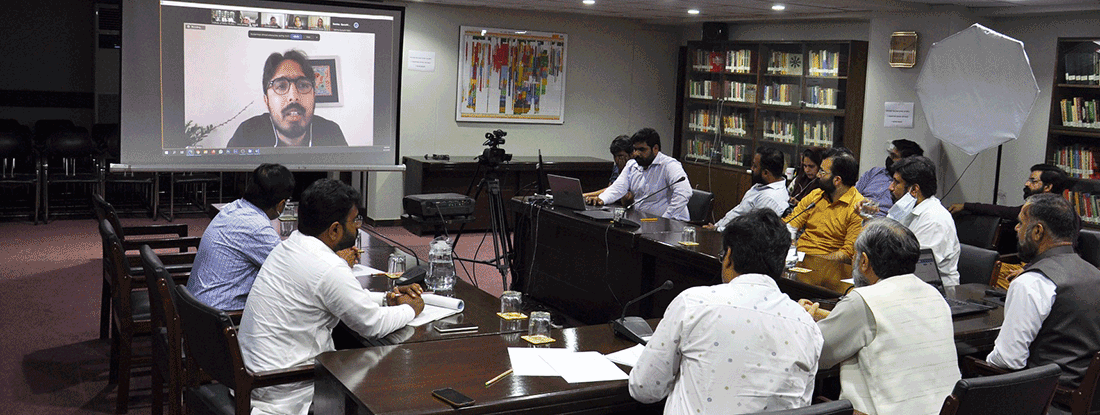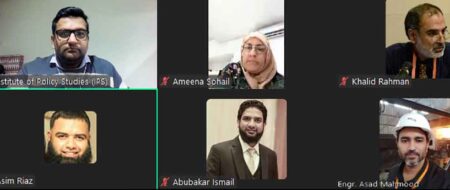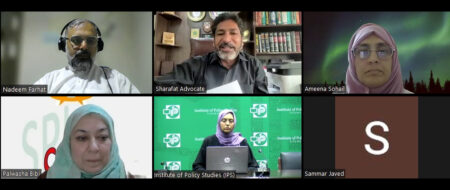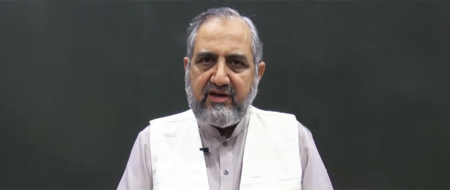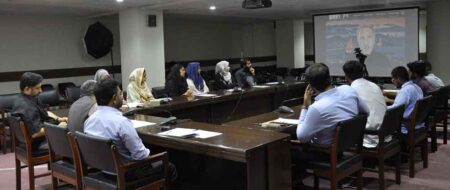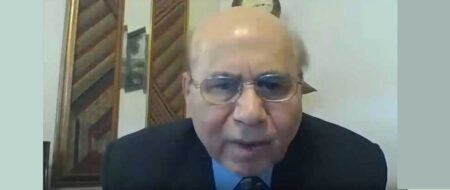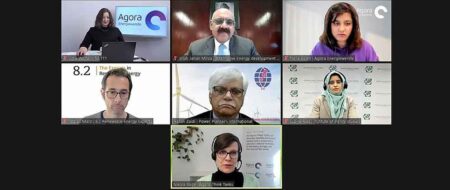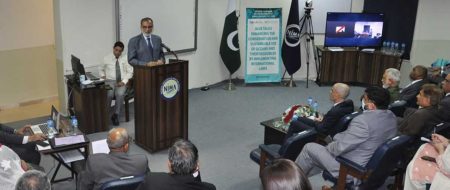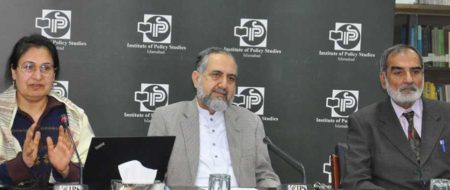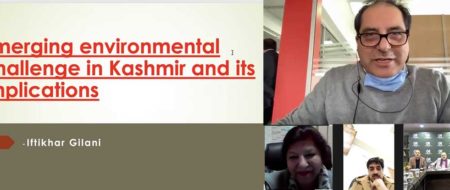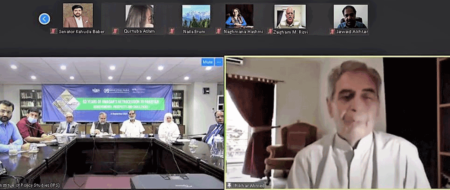‘Decolonial Muslim Studies & Defending Muhammad (PBUH) in Modernity’
‘Decolonization needs narratives that are not constructed by the West’: IPS webinar
Islam is as liberal to discuss and debate differences objectively as secularism claims to be, and questioning secularism as the only way to inclusiveness, peaceful coexistence and tolerance means the decolonization of thoughts and society.
This was the spirit of a discussion at a webinar titled ‘Decolonial Muslim Studies & Defending Muhammad (PBUH) in Modernity’, organized by IPS in collaboration with the international network of scholars ‘Decolonial Dialogue’ on August 12, 2021 The webinar was part of the Book Discussion series, a joint effort by the two organizations in bringing international scholarly debates to Pakistani academia.
Sher Ali Tareen, a professor at Franklin and Marshall College, USA, put forth the key themes of his book ‘Defending Muhammad in Modernity.’ Discussants included Dr Humeira Iqtidar of King’s College London, Dr Nauman Faizi of LUMS, and Dr Anis Ahmed, vice-chancellor, Riphah International University (RIU), Islamabad. Nazeer Mahar from The Research Initiative and Zaigham Sarfaraz from Royal Hollaway University London also took part in the discussion.
Summarizing the key points of his book, Professor Tareen meticulously analyzed the Deobandi-Barelvi polemics and debates in the aftermath of the fall of Mughal Empire and the Muslims, and the rise of the British colonial empire.
Complicating the secular perceptions of 19th century Islam, Tareen termed these debates as ‘competing political theologies’ that cannot be understood through the Western Eurocentric binaries. Using the Deobandi and Barelvi theological assertions primarily, he challenged the binaries of traditional/moderate, progressive/conservative, and legal/mystical embedded often in secular perceptions of Islamic tradition.
He reflected on how the concepts of Divine sovereignty, prophetic authority of the Prophet (PBUH), and ritual practices gave birth to two intellectual streams in the Subcontinent in the 18th and 19th centuries. He regarded the understanding of modern constructions of religion and particularly the study of Islam through Eurocentric epistemology and world view in contradiction with decolonization. Secularizing or Westernizing religious concepts does not consider epistemological and ontological frames of thought of a particular religion, he added.
Dr Humiera Iqtidar noted that much is lost in translation from the vernacular to the Western epistemes. She particularly highlighted the notion of ‘sovereign’ and ‘sovereignty’ that scholars borrow from the West to use as a synonym of ‘hukum’ or ‘hakimiyat’ in Islam.
She was of the view that believing in and exploring options other than secularism for ensuring peace and stability, tolerance and peaceful coexistence is tantamount to decolonization as the concept of secularism has its own history of how it developed in the West over the centuries. She maintained that criticism of the secular paradigm should not be taken as the total rejection of the secular idea, but as the valid criticism of considering secularism as the only solution to all the evils.
Dr Anis Ahmed argued that both Deobandi and Barelvi schools of thought have the same origin and are not in contradiction with each other. They share many commonalities in principles and practices. However, the difference lies in the theological approach adopted by scholars of both streams. He said that there is a coherence in all sects of Islam and it was the application of Western epistemology when applied to study the Muslims and their debates that particularly underscores divergences among the sects. He emphasized the need for adopting Islamic epistemology/methodology in place of Western epistemology and ontology to comprehend religious concepts and differences prevailing among various groups. He observed that Muslims have a rich corpus of words that can be explained and understood in their own context and from within the Islamic traditions, without comparing or contrasting them with the Western epistemes.
Concluding the session, Vice-President IPS Syed Abrar Hussain acknowledged the efforts of Professor Tareen for highlighting convergences and divergences between the Deobandi and Barelvi traditions of the Hanafi school of thought. Citing from Hadith, the former ambassador explained that the dialectical debate or constructive argumentation is appreciated in Islam, and this adds to the flexibility and pluralist thoughts in its realm.


